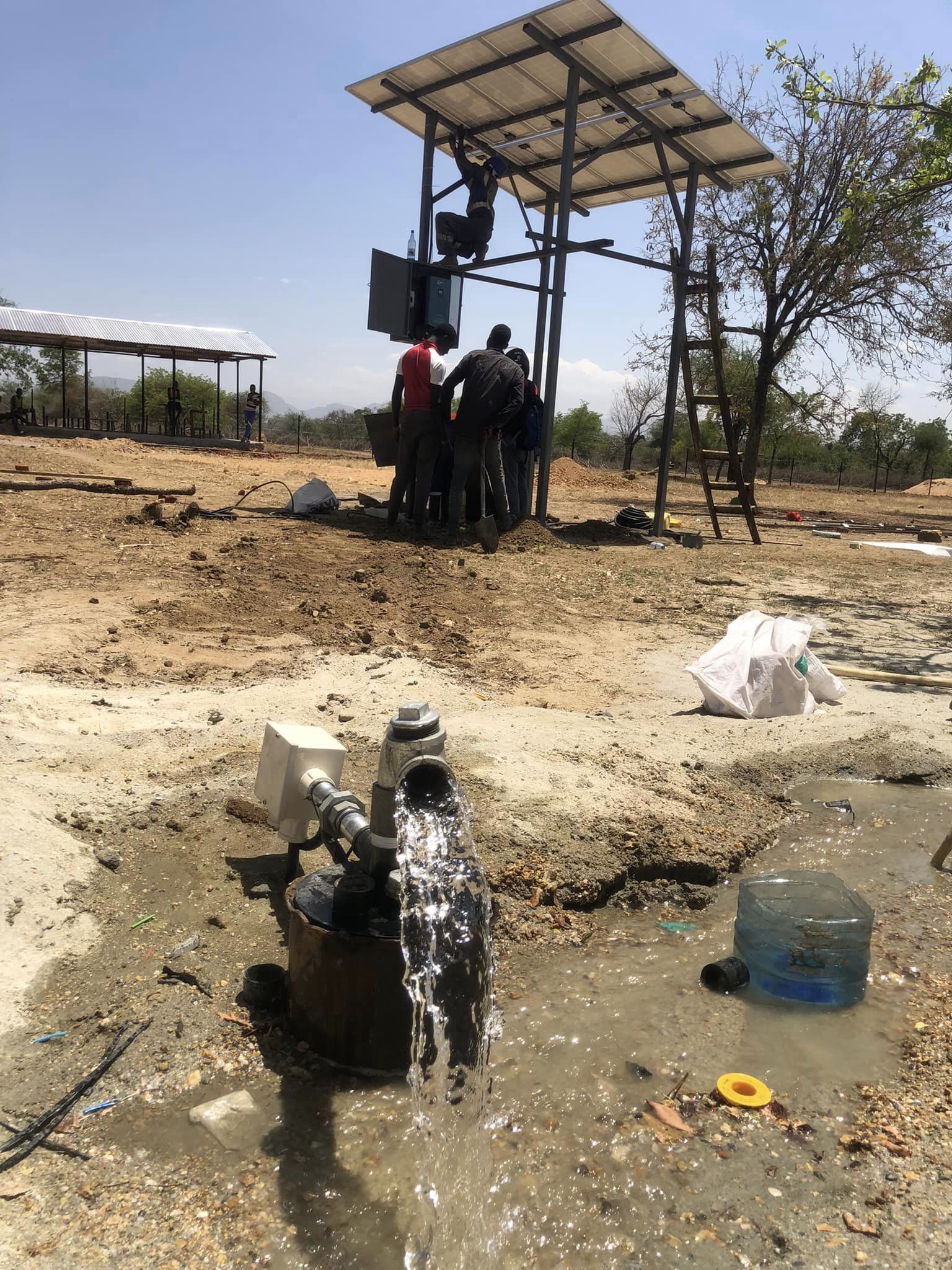Access to clean water is essential for the well-being and development of communities, especially those in remote areas. Solar pumping systems have become a reliable and cost-effective solution for accessing water in such areas where electricity is not readily available. One such system has been installed in Lokii Ward, about 20 kilometers from Kacheliba Town in West Pokot County.
The solar pumping system is fully powered by solar panels, using 10 panels with a capacity of 150 watts and 24 volts DC. The panels can produce a total of 1,500 watts of energy, which is enough to power the pump and supply water to the surrounding area. The pump used is a Model W2A18 0.75kw complete with 1 phase sub-motor, capable of supplying up to 12,000 liters of water per day to the tanks.
The installation of this solar pumping system has provided a reliable and cost-effective solution for accessing water in the area. The community can now use the water for their animals, and the school can accommodate more pupils using water at zero power cost from the free solar water system. The project was completed in just two working days, making it a fast and efficient solution for the community.
The installation of solar pumping systems in remote areas has several benefits. They are environmentally friendly, as they do not emit any greenhouse gases and help to reduce dependency on fossil fuels. They are also low maintenance, with no moving parts in the solar panels, which means they have a longer lifespan than traditional pumping systems.
The solar pumping system in Lokii Ward is a sustainable solution for providing access to water, which is essential for the well-being and development of the community. In addition to providing water for domestic use, the system can also be used for agricultural purposes, such as irrigation, and the water can be used for livestock as well.
Solar pumping systems have revolutionized access to water in remote areas, making it possible for communities to become self-sufficient in their water needs. The systems are flexible and can be used in a wide range of applications, making them ideal for rural communities.
In conclusion, the installation of a solar pumping system in Lokii Ward, West Pokot County, is a significant step towards providing access to clean water for the community. The system is fully powered by solar panels, making it environmentally friendly and low maintenance. The project was completed efficiently in just two working days, providing a reliable and cost-effective solution for accessing water in the area. The solar pumping system is a sustainable solution for promoting the well-being and development of the community, and it is an excellent example of how renewable energy can be used to improve the lives of people in remote areas.

